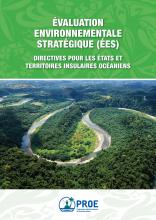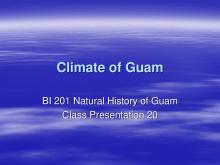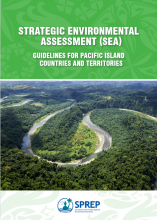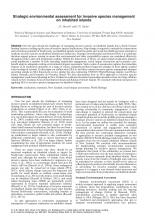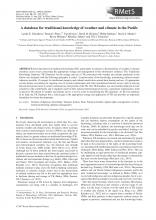Strategic environmental assessment for invasive species management on inhabited islands.

BRB
Available Online
Over the past decade the challenges of managing invasive species on inhabited islands have clearly become limiting factors to scaling-up the area of invasive species eradications. Step-change is required to unleash the conservation and restoration potential of biodiversity on inhabited islands around the globe and avoid the pitfalls previous attempts to eradicate invasive species on inhabited islands have fallen into. Strategic environmental assessment (SEA) is a systematic decision support process, aiming to ensure that environmental and other sustainability aspects are considered effectively throughout policy, plan and programme making. Within the framework of SEAs, on target islands eradication planners could implement a number of tools including stakeholder engagement, social impact assessment and economic cost benefit analysis alongside existing environmental impact assessment. Such a suite of assessments captures the immediate impacts of an eradication operation on a range of values, alongside predicted long-term changes in these tightly coupled socio-ecological systems. In this paper we outline what SEA is, and then contrast invasive species management attempts occurring outside an SEA framework on two similar but also contrasting UNESCO World Heritage islands; Lord Howe Island, Australia and Fernando de Noronha, Brazil. We then demonstrate how an SEA approach to invasive species management would assist planning in New Zealand to eradicate introduced mammalian predators from two large off shore islands in New Zealand; Aotea (Great Barrier Island) and Rakiura (Stewart Island). We conclude with future prospects for applying SEA to invasive species management on inhabited islands.

